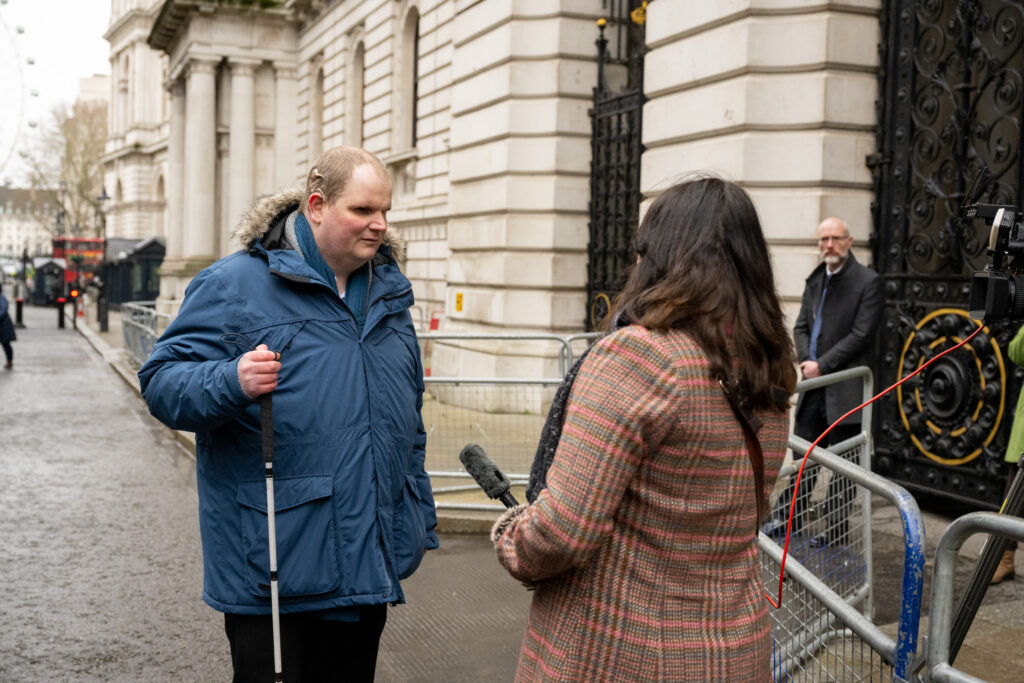What Disability Pride Month means to me
This July is Disability Pride Month 2023. Originating in the US, it has become an internationally recognised awareness month.
Exactly what disability pride means seems to vary from person to person, but some examples include celebrating diversity and raising awareness of the barriers disabled people face.
This year, it’s prompted me to think about what “disability pride” means to me.

It’s not always easy to feel proud of being disabled
When I was asked to write a blog for Disability Pride Month, the first thing I thought about was: “Am I actually proud of my disability?”
I’m deafblind and have recently been diagnosed with autism as an adult. I have very mixed feelings about my life as a disabled person.
My life is sometimes happy, sometimes sad, sometimes fun, sometimes frustrating. I have times that are full of laughter and friendships, and times when I feel very lonely. When I’m down, it can be hard to feel proud of my disabilities.
But the question is: how many of the challenges I face are actually due to my disabilities, and how many are due to the way society views disabled people?
My hearing loss means I do struggle to hear in social settings, and my autism means I can struggle with certain situations. But beyond this, there are so many societal barriers that disabled people like me face.
Negative attitudes to disabled people impact how I feel about myself
Recently, we’ve seen a lot of stories in the media focussing in on how society treats those who need support.
“My hope is that, by campaigning for change disabled people in the future will be able to live the lives they want to lead free from discrimination and the barriers that create so much challenge.”
The TV show Jeremy Vine on 5 recently asked whether taxpayers should continue to pay for benefits for people who didn’t work. The debate showed no understanding that many disabled and chronically ill people aren’t able to work, or face negative attitudes from employers.
At around the same time, the Telegraph asked ‘Exactly how much of your salary is going towards Britain’s ever growing welfare state?’
Depictions of disabled people as benefits scroungers or burdens really does have a negative impact on how some disabled people are made to feel about themselves.
I feel pride in my work trying to create a better society
Campaigning is a vital way of trying to bring about societal change. That’s why I’m proud of the role I play in the campaigns team at Sense.
Over recent years, we’ve campaigned on a range of topics that matter to disabled people. We’ve tackled the issue of loneliness among disabled people, and we’ve fought for disabled people’s experiences during the Covid-19 pandemic to be the heart of the public inquiry.
In March, we handed in a petition to 10 Downing Street, signed by over 80,000 amazing supporters, highlighting the challenges faced by disabled people and their families during the ongoing cost of living crisis.
This is where I take pride in being disabled. I’m proud to be part of a community that’s fighting for a better, more inclusive society.
My hope is that, by campaigning for change disabled people in the future will be able to live the lives they want to lead free from discrimination and the barriers that create so much challenge.

